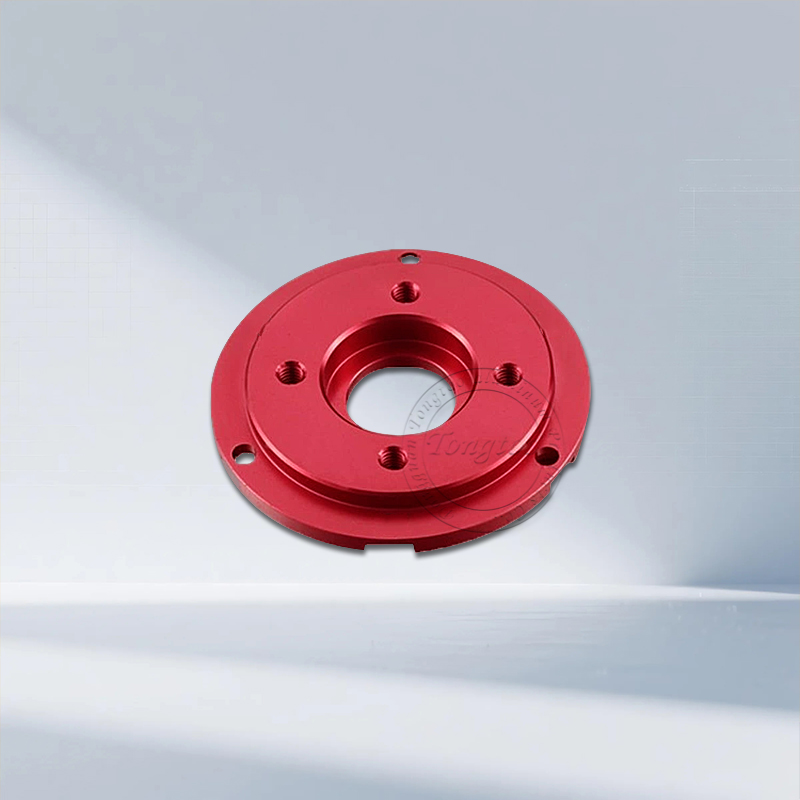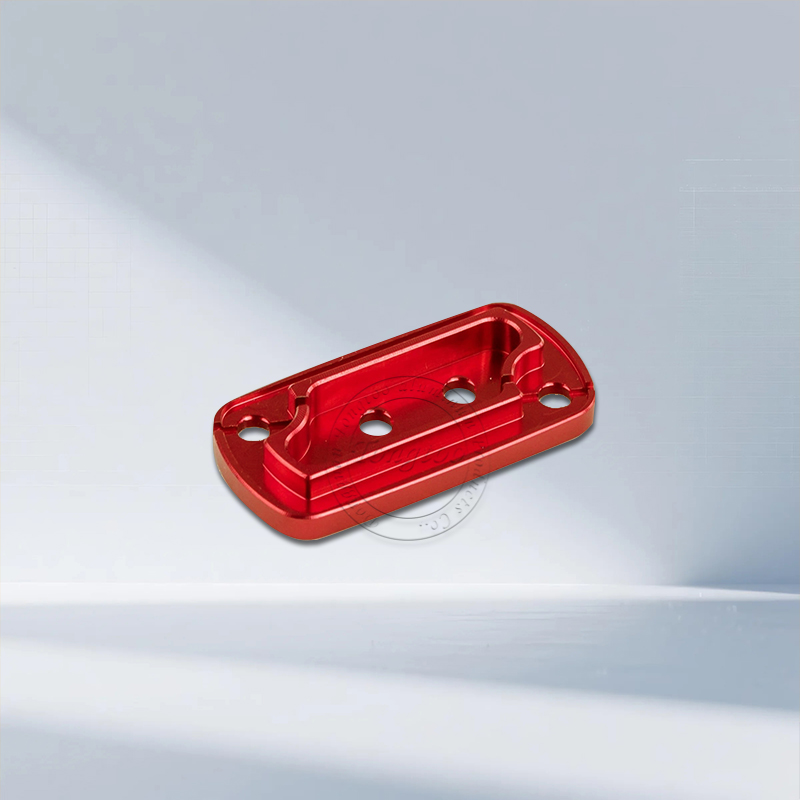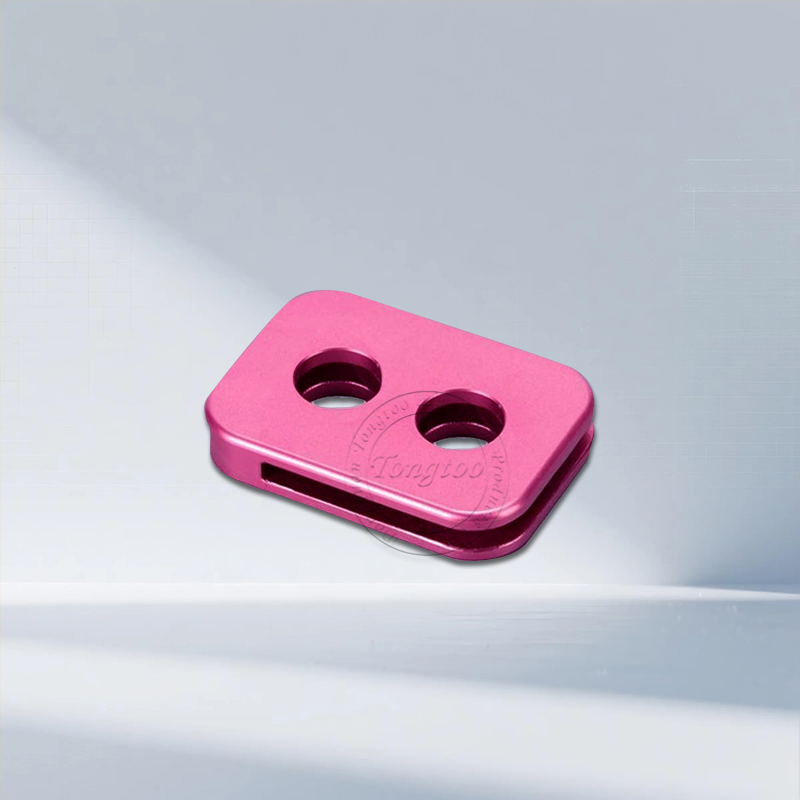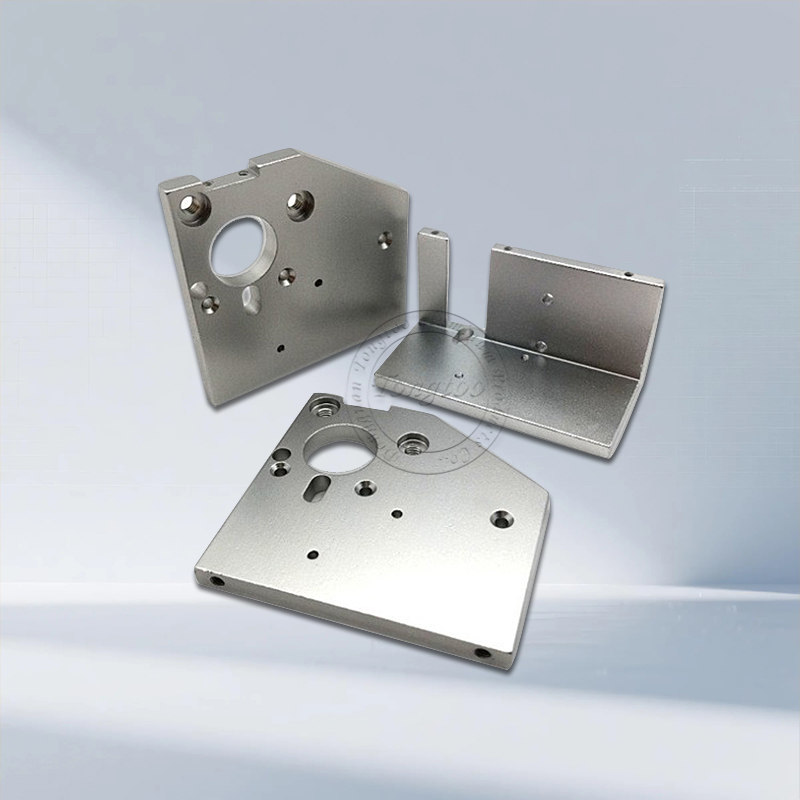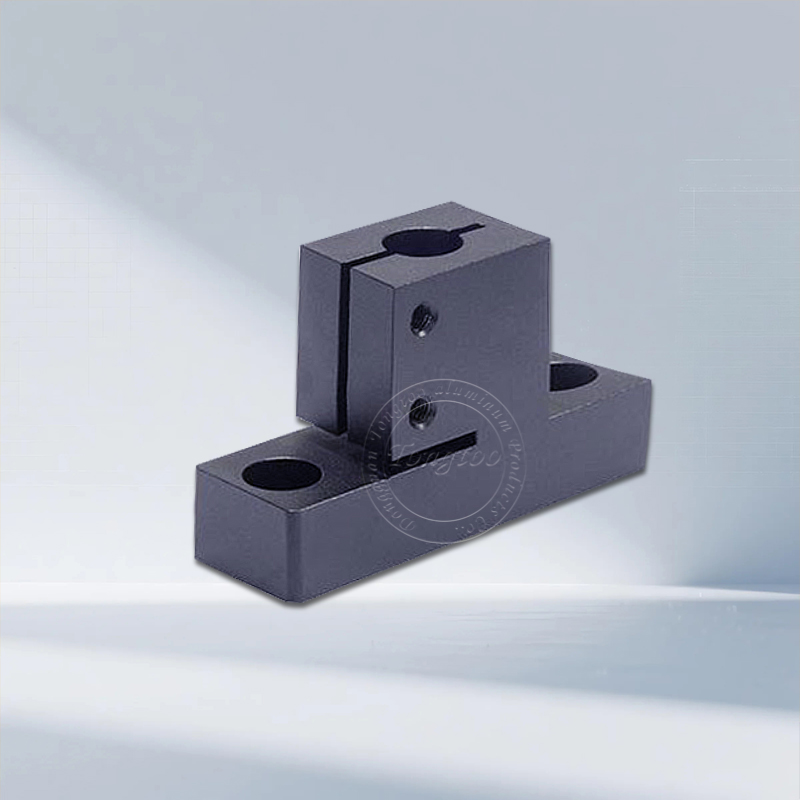CNC Machining Of High-Precision Aluminum Alloy Parts
Tongtoo Aluminum Products Co., Ltd. specializes in providing customized CNC machining services for high-quality, high-precision aluminum alloy parts. We utilize premium aluminum alloys (such as 6061-T6, 7075-T6, and 5052), utilize advanced CNC machining centers, and adhere to stringent quality control procedures to create metal parts with precise dimensions, complex structures, and reliable performance. Whether for prototyping or mass production, we can meet your precision metal machining needs.
Product Description
Product Introduction of the High-Precision Aluminum Alloy CNC Machined Parts
Tongtoo Aluminum Products Co., Ltd. specializes in providing customized CNC machining services for high-quality, high-precision aluminum alloy parts. We utilize premium aluminum alloys (such as 6061-T6, 7075-T6, and 5052), utilize advanced CNC machining centers, and adhere to stringent quality control procedures to create metal parts with precise dimensions, complex structures, and reliable performance. Whether for prototyping or mass production, we can meet your precision metal machining needs.
Product Parameters
Product Name: High-Precision Aluminum Alloy CNC Machined Parts
Material: 6061/6063/7075/5052
Processing: Die Extrusion/CNC Machining/Milling/Stamping/Die-Casting
Surface Treatment: Anodizing/Hard Oxidation/Powder Coating/Laser Engraving
Product Features: Modular construction supports customized hole openings, dimensions, and logos
Product Features and Applications
Excellent Precision and Consistency:
Using high-precision CNC machine tools (three-axis, four-axis, and five-axis linkage), we ensure that part dimensional tolerances are strictly controlled within ±0.01mm to ±0.05mm (or as required by the drawing), meeting precision assembly requirements.
CNC programming ensures high consistency in mass production and reduces manual errors.
Excellent Material Properties:
Mainly made of 6061-T6 aluminum alloy: It offers excellent mechanical strength, processability, corrosion resistance, and anodized coloring properties, offering excellent overall performance and the widest application. Optional 7075-T6 aluminum alloy: Ultra-high strength, comparable to steel, suitable for components in aerospace, sports equipment, and other applications requiring extremely high strength.
Optional 5052 aluminum alloy: Excellent formability and corrosion resistance, commonly used in marine and chemical environments.
The material's pure quality and dense microstructure ensure stable and reliable performance after processing.
Powerful Complex Structure Processing Capabilities:
CNC machining is unconstrained by traditional processes and can easily produce complex 3D surfaces, deep cavities, fine holes, thin walls, special-shaped structures, and precision threads, offering exceptional design freedom.
Excellent Surface Finish:
Processing results in excellent surface roughness (typically reaching Ra 0.8μm - Ra 3.2μm).
Provides an excellent base surface for subsequent surface treatments such as anodizing, sandblasting, painting, electroplating, conductive oxidation, and laser engraving.
Flexible Surface Treatment Options:
Anodizing: Available in a variety of colors (natural, black, gold, red, blue, etc.), significantly enhancing wear resistance, corrosion resistance, and aesthetics. Available in standard or hard anodizing.
Sandblasting: Achieve a uniform, fine matte finish, enhancing both feel and appearance.
Chemical Conductive Oxidation: Provides basic corrosion protection while maintaining electrical conductivity.
Painting/Powder Coating: Offers a wider range of color options and special functional coatings (such as high-temperature resistance and insulation).
Laser Marking/Laser Engraving: Permanently mark logos, serial numbers, text, and other patterns.
Applications of High-Precision Aluminum Alloy CNC Machined Parts
Consumer Electronics: Mobile phone/tablet midframes and structural components, laptop casings, camera parts, audio components, smart wearable device brackets, and radiators.
Automotive: Engine peripheral parts (brackets, housings), sensor housings, chassis components, new energy vehicle battery pack structural components/end plates, charging cable components, and interior trim.
Aerospace: (Subject to stricter standards) UAV frames and components, model aircraft parts, aircraft interiors, small satellite structural components (prototypes or non-critical parts), and test fixtures. Industrial Automation: Robot joints and arms, precision instrument brackets and housings, sensor bases, fixtures, guide rails and sliders, cylinder components, and connectors.
Optical and Medical Equipment: Lens barrels, lens mounts, laser housings, medical device housings, brackets, and handles (biocompatibility certification required).
Communications Equipment: 5G base station antenna covers, filter housings, RF device housings, and heat sinks.
Photographic Equipment: Gimbal components, camera grips, lens accessories, and lighting brackets.
Models and Sports Equipment: Bicycle parts (brake handles, pivot points), model airplane parts, and high-end sports equipment accessories.
Product Details
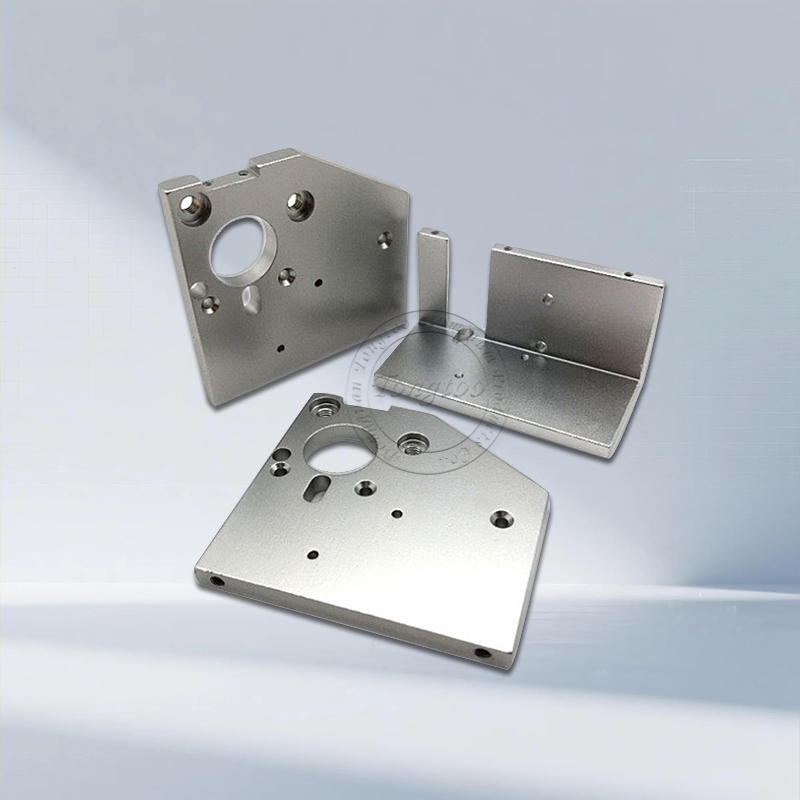
High Efficiency and Fast Response:
Digital processing (CAD/CAM programming) shortens production setup time.
It is suitable for rapid proofing of small batches and supports stable production of medium and large batches.
Quickly respond to customer needs and shorten product time-to-market.
Excellent Strength and Lightweight:
Aluminum alloy inherently has a high strength-to-weight ratio. Processed parts maintain structural strength while achieving lightweight performance, making it an ideal choice for applications in aerospace, automotive, and consumer electronics.
Strict Quality Control: ISO quality management system certification (e.g., ISO 9001) is implemented throughout the entire production process. Equipped with precision testing equipment (e.g., coordinate measuring machines/CMMs, 2D imagers, hardness testers, film thickness gauges, salt spray testers, etc.), we conduct rigorous incoming material inspection (IQC), in-process inspection (IPQC), and finished product inspection (FQC/OQC). This ensures that products meet dimensional accuracy, geometric tolerances, surface quality, and performance requirements.
Product Qualification
Environmental Certifications:
RoHS Certification (lead-free, cadmium-free, and other hazardous substances)
REACH (European Union Chemical Safety Directive)
Quality Management System:
ISO 9001:2016/ISO 9001:2015 (production process quality control)
Delivery, Shipping, and Serving
|
|
|
A professional ODM & OEM manufacturer with over 20 years of precision machining experience. We prioritize customer needs and provide comprehensive customized services.
Standard Packaging: Copy paper + carton
Custom Packaging: Blister tray/PEF + wooden box
FAQ
What aluminum alloy materials do you primarily process? Which is the most commonly used?
A: We most commonly machine 6061-T6 aluminum alloy due to its excellent overall performance (strength, machinability, corrosion resistance, and surface treatment capabilities) and cost-effectiveness. We also offer other grades, such as 7075-T6 (ultra-high strength), 5052 (good corrosion resistance and formability), 2024 (high fatigue strength), and 6082 (commonly used in European standards), to meet your specific performance requirements.
Q: What is the achievable accuracy of CNC machined aluminum parts?
A: Standard machining accuracy is typically ±0.05mm. For more demanding features, precision equipment and process control can achieve ±0.01mm or even higher. The actual achievable accuracy depends on the specific part structure, size, feature complexity, and the equipment and process used. We will discuss the tolerance requirements in detail with you before providing a quote.
Q: What surface treatment options are available? What are the benefits of anodizing?
A: Common surface treatments include:
Anodizing: Highly recommended. It significantly improves surface hardness, wear resistance, and corrosion resistance, and is available in a variety of attractive colors. It is the most commonly used and most effective surface treatment for aluminum parts.
Sandblasting: Produces a uniform matte finish, enhancing both appearance and feel.
Chemical Conductive Oxidation: Low-cost, provides basic corrosion protection while maintaining conductivity.
Painting/Powder Coating: Offers a wide range of colors and special functional coatings.
Laser Marking: For permanent marking.
Natural: Retains the original metal color with minimal cleaning or passivation (machining marks may be noticeable).
The core benefits of anodizing are: enhanced durability (wear and corrosion resistance), aesthetically pleasing appearance (rich colors), insulation (hard anodized layer), and providing an excellent base for subsequent processes such as painting and bonding.
Q: What is the minimum order quantity (MOQ)?
A: CNC machining offers high flexibility. We accept orders of one piece, making it ideal for prototyping and small trial runs. For mass production, larger quantities generally result in more competitive unit costs. The specific price will be calculated based on your quantity and process requirements.
Q: How long does it take from order placement to delivery?
A: Production lead time depends on part complexity, quantity, and current order schedule.
Simple parts/small batch prototyping: Typically approximately 3-7 business days.
Complex parts/medium batches: May take 1-3 weeks.
Large-volume production: This will require a specific capacity assessment and typically takes 2-6 weeks or longer. We will promptly assess and provide you with an accurate delivery time upon receipt of your drawings or 3D models.
Q: What documents do I need for a quote and production?
A: Please provide clear, complete 2D engineering drawings (PDF/DWG/DXF) or 3D model files (STEP/IGES/SLDPRT/X_T, etc.). The drawings/models must include: Detailed dimensioning and tolerance requirements; Specified material grades; Surface finish requirements (type, color, thickness, etc.); Quantity; and any other special requirements (such as special testing, packaging, etc.). The more accurate and detailed the information provided, the smoother and more efficient the quote and production process will be.
Q: Will the machined parts have burrs? How are they handled?
A: Burrs may form during CNC machining. We have a rigorous deburring process, utilizing methods such as manual deburring, vibration grinding, and magnetic polishing to ensure smooth edges on parts delivered to you, meeting the drawing requirements, ensuring safe use and smooth assembly.

